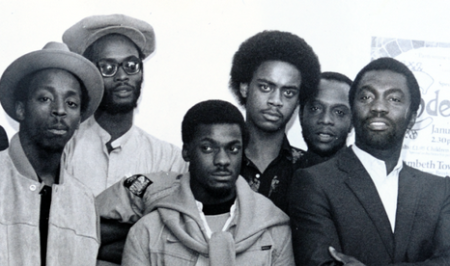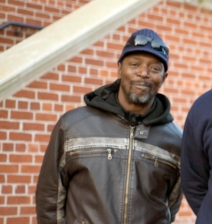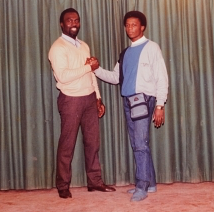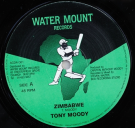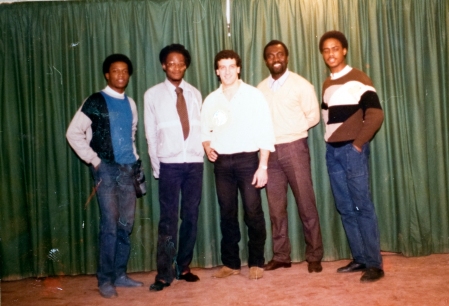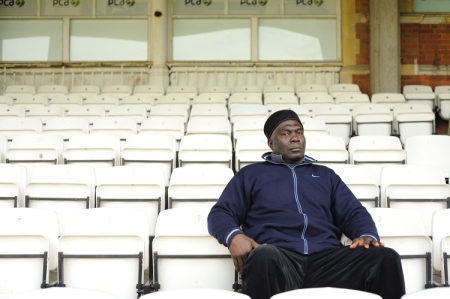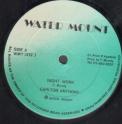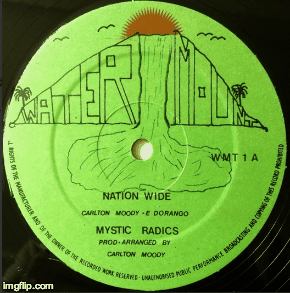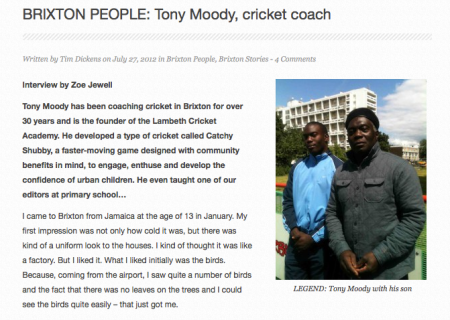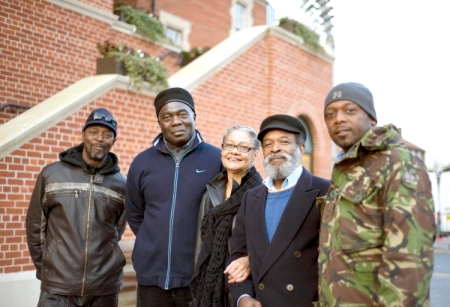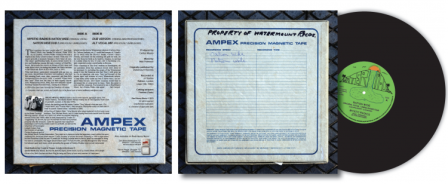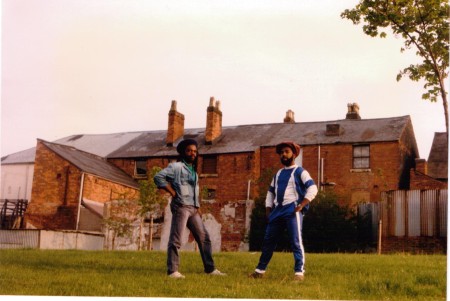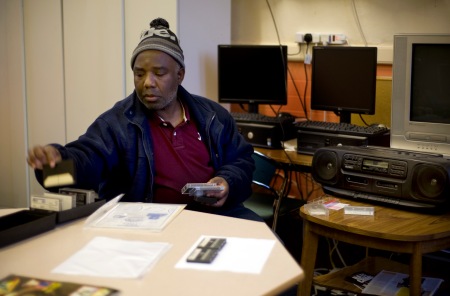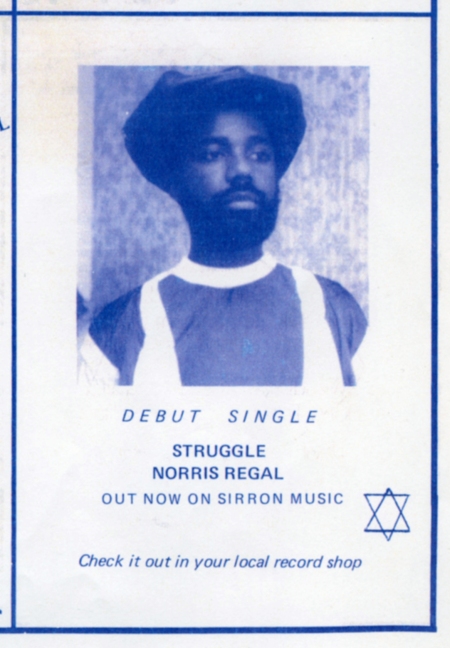
Where did the your stage name Norris Regal come from?
One of the times when I was singing on the sound, someone said, “bway Norris, man, you sing like a prince.” and I said, “Yeah man, I regal, me regal.” It kind of stuck from there.
What songs were you singing in the contest?
Ain’t No Sunshine was one, definitely, it was a reggae version of a Michael Jackson song, by Phillip Fraser maybe? There’s another record, I Need a Woman. That would be in 1980 I think.
Why did you not reach the finals?
There’s always two sides to a story, but put it this way ; I have to be careful how I say these things cause I don’t want to discredit people, but… one of the judges was in a group, and after that semi-final, he asked me if I wanted to come listen to their group, because they were looking for a lead singer.
I was a bit upset anyway, so that was the last interest I had. So I mean, I don’t want to go far into that. It was just one of those things, really.
To be honest another thing that came up as well was image. At the time if you didn’t have locks and you were singing roots music… In those days you were supposed to be a locks man. It was a lot of rubbishy things like that. Doesn’t really help. That was probably one of these things.
So, from there, Cecil Morris told you to re-record, and?
When I met the guys, we did a few practice sessions, they obviously learned the track. I started to re-arrange things and so on, there was a bit of confusion between what Cecil wanted, and what I wanted. Obviously it’s my song, so that project ended, but talking to the guys, they sort of said you don’t want to let a project finish just like that. So I took the project on my own, and the first thing we decided was instead of using the same bass line that was on the riddim track, to change it so it’d be a total new track, new song, everything.
Who was the backing group?
It was a group called Unity. A local band from Stonham, Birmingham. They used to play out a lot, but I don’t really recall them recording, it was a new experience to them going into a studio.
By the time we dropped this riddim and so on, I went back to the initial producer and told him this song which I did for you 18 months ago, I revamped it totally. I made him hear it, and then he loved it. First thing he said was, I need to be the one mixing it for you, Norris. So I says, OK, no problem with that. We mixed it at Easy Street Studios, London.
At the time the way the system used to be, you try out the record labels initially, and what they would do, if they see a hit in it straight away they take it up, but what a lot of the would do is say , I’ll tell you what, you go press a few copies, we’ll see what the reaction is, and then we’ll take it up if we think we can push it further.
You’d push it to sound systems as well, right?
Yes. And radio stations, some of the distributors, depending on what type of record it is. Remember in this business a lot of it has to do with timing. Sometimes if you are a bit unfortunate, you can have a good song or a good track, and just from releasing it at a wrong time, it just fades away.
One of the things that struck me in Struggle was these stellar backing vocals -who did them?
Two girls. And me. I needed to do some backing vocals, and originally it was gonna be me and the guys. I thought it’d be better if we had some girls because it’d bring out my voice better. I needed some women. They knew two girls who were doing a bit of singing. They came to one practice session, I harmonized with them, we went to the studio and dropped that, really. To get more stronger effect, you can do the bouncing effect, where you multiply it and it sounds like a bit stronger. I don’t remember the names –if you had asked me 30 years ago, I would have told you everything, man!
What happened then?
I pressed 1000 copies, got plenty of air play. I mean, it depends. Certain radio stations obviously wouldn’t play it, it’s not their type. John Peel played it on Radio One, and then we’d have local radio stations. They used to push it a lot. The thing was, the London side of things, I left to Jet Star and they took 250 copies off me at the time, then I deal with… You heard of Winston Reedy? Well, I became friends with him.
I started to move into those circles, I knew Carol Thompson and Janet Kay and Winston Reedy, quite a few of them. Winston and his manger at the time, Chilly Dixon. They used to help me with the promotion side of things at the time. Winston got quite big, and in the end he used to come to Birmingham a lot. He signed for UB 40’s record label. Those guys helped me with marketing.
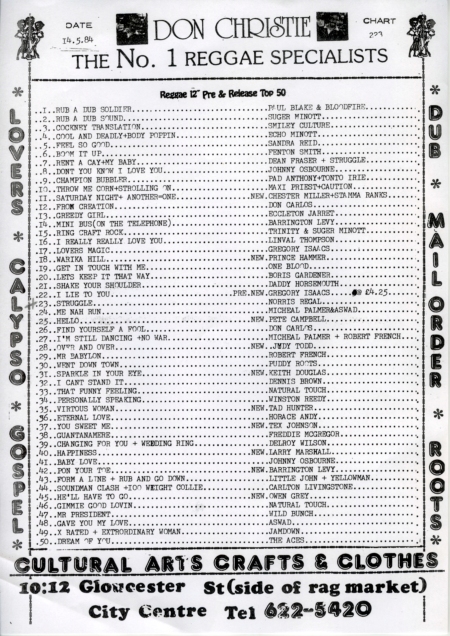 Check Norris Regal’ 12″ ranking spot # 23 in Don Christie’s charts ! May 1984
Check Norris Regal’ 12″ ranking spot # 23 in Don Christie’s charts ! May 1984
It’s probably them who gave it to Jah Shaka?
Really it’s those guys. Shaka was a producer himself, he knows what he likes and plays.
The Sirron label – What does it mean? I realy tried to dissect that when I was looking for you.
Oh… It’s just my name spelt backwards.
Damn. Of course!
Don’t let the secret out now!
I was researching your name, I thought it was Sir Ron maybe.
It’s quite good, innit?
Do you think your record came out at a wrong time?
Yeah, partly. The trouble is, when you write about something, and if you feel passionate at the time about it, you feel that it could work any time. You learn from experience, don’t you?
After that, it didn’t reach the success you hoped for, then what?
Then obviously in the meantime, Bertie sent me a couple other riddim tracks, I wrote some songs, but then, I’m not even sure if he actually heard the songs in the end. he was with S&G records, but he split away from S&G. Then he was strictly working with Carol Thompson, then I think him and Carol had a bit of a bold stop. These guys at the time, if you didn’t know anyone else, you were kinda stuck.
I tended to be more following around Winston Reedy, I did a few dubplates, I went to Capitol Radio with dubplates and things, I met up with some guys in Birmingham who used to aid in the backing tracks with UB40.
I also got in contact with some of these guys, and one of the guys we used to call him Computer Paul. I did a few tunes with him as well. I don’t think they came out. He used to send some to America, and he used to give me feedback but nothing too strong, nothing that was gonna change my life, put it that way.
